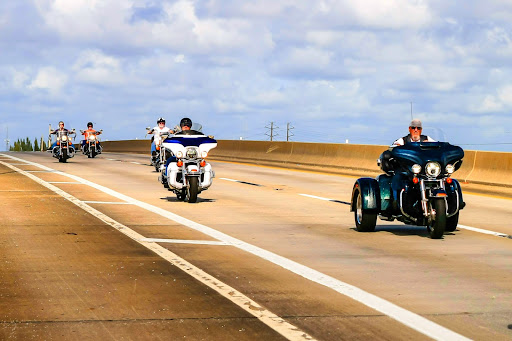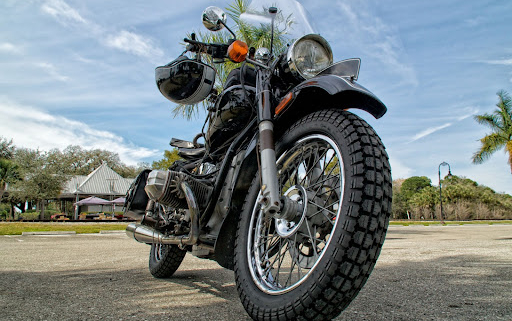Whether you’re visiting the Sunshine State for Daytona Bike Week or looking for a more fuel-efficient way to commute to work, motorcycle riding is popular year-round in Florida.
Staying safe while you ride is important since a motorcyclist lacks much of the protection that a car or truck provides. Florida motorcycle laws are intended for driver safety, and learning the rules of the road can keep you safe and help you avoid getting a citation.
Essential motorcycle laws in Florida
In Florida, many of the laws governing motorcycle safety gear permitted passengers and operations are governed by Florida Statutes 316.211. Even though Florida enacts many laws to protect motorcycle drivers, accidents still happen, and it’s usually the biker who suffers more severe injuries.
When the unthinkable happens, a Florida motorcycle accident lawyer can help you file a claim for damages.
Motorcycle endorsement
A motorcycle endorsement on your driver’s license is required to operate a motorcycle in Florida.
Helmet laws
Helmets are mandatory for all riders under 21, whether they’re the operator or a passenger. Riders 21 and older may choose not to wear a helmet, but they must carry insurance coverage specifically for injuries and damage caused in a motorcycle accident with a policy minimum of $10,000 to ride helmetless.
This policy is similar to Florida’s personal injury protection auto insurance requirement, but it specifically covers motorcycle accidents.
Mandatory eye protection
Eye protection like goggles or sunglasses (review the Florida Department of Transportation rules for eye protection) is required for all riders at all times.
Lane-splitting laws
Lane-splitting, the practice of driving between two lanes of stopped or slowed traffic, is illegal in Florida, as is passing in the same lane (also sometimes referred to as lane-splitting). Motorcyclists cannot overtake and pass a vehicle occupying the same lane within the same lane.
No more than two motorcycles riding abreast
Motorcycle drivers may not ride more than two abreast in the same lane, per Florida Statute 316.209(4).
Stunts are illegal
Motorcycle drivers must ride the bike astride and keep both wheels of the bike on the ground at all times unless road conditions cause the driver to momentarily lose contact with the surface. Stunting or driving the bike in any other manner is prohibited.
Speed racing or drag races, whether in a parking lot or on the road, are also prohibited, as are:
- Engaging in an acceleration contest
- Performing an exhibition of speed or attempting a speed record
- Participating in a test of physical endurance on a motorcycle
Passenger rules
If a motorcycle driver wishes to carry a passenger, the bike must either have a specific passenger seat or be built with a seat for two. The seat must be permanent and attached, and only one other person is permitted on the bike in addition to the driver at any time.
Motorcycles are also required to have footrests for passengers, either standard on the bike or added aftermarket. Passengers are subject to the same safety gear requirements as drivers, including helmet and eye protection laws.

Listening devices
Any headset not attached to the motorcycle helmet is not permitted for motorcycle drivers. This includes:
- Headphones
- Headset
- Any other listening device
Hearing aids or other similar instruments for hearing enhancements are permitted, though.
Headlights must always be on
Every motorcycle in Florida is required to have at least one (but not more than two) Florida DOT-compliant headlights. The headlights must be maintained in good working order. Unlike cars, which are only required to have headlights on in the dark or during inclement weather, motorcycle drivers must always keep their headlights on.
In addition to the headlights, the bike must also have the following:
- A rear red reflector, whether part of the taillight or in addition to it
- A stop lamp
- Turn signals
Motorcycles must have mirrors
Mirrors are required for all motorcycles and must give the operator a view of the road at least 200 feet behind them. A lack of mirrors results in a noncriminal traffic violation, with nonmoving violation penalties.
Have you been struck by another driver while riding your motorcycle? We can help!
The Florida motorcycle accident lawyers with Lytal, Reiter, Smith, Ivey & Fronrath help injured motorcyclists get the fair compensation they deserve. Contact us today at (561) 655-1990 for a free case consultation.




